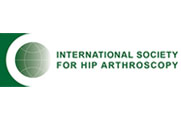Effect of previous cerebrovascular accident on outcome after hip fracture
Categories
Youm T; Aharonoff G; Zuckerman JD; Koval KJ
2000 Jun-Jul;14(5):329-34, Journal of orthopaedic trauma
OBJECTIVE: To evaluate the effect of previous cerebrovascular accident on outcome after hip fracture. STUDY DESIGN: Prospective, consecutive. PATIENTS: From July 1987 to March 1997, 862 community-dwelling patients sixty-five years of age or older who had sustained an operatively treated femoral neck or intertrochanteric fracture were prospectively followed. INTERVENTION: All patients had operative fracture treatment. MAIN OUTCOME MEASUREMENTS: Postoperative complications, in-hospital mortality, hospital length of stay, hospital discharge status, one-year mortality and place of residence, and return to preinjury ambulatory level, basic and instrumental activities of daily living status. RESULTS: Sixty-three patients (7.3 percent) had a history of cerebrovascular accident; the fracture was on the hemiplegic side in forty-six (86.8 percent) of the fifty-three patients with hemiplegia. Patients who had a history of cerebrovascular accident were more likely to be male and have an American Society of Anesthesiologists (ASA) rating of III or IV. They were also more likely to have three or more comorbidities, be a home ambulator, and be dependent on basic and instrumental activities of daily living before hip fracture. Hospital length of stay was significantly higher for patients who had a history of cerebrovascular accident. There were no differences in the incidence of hospital mortality or one-year mortality between patients who did and did not have a history of cerebrovascular accident before hip fracture. In addition, at one-year follow-up, when controlling for prefracture level of function, there were no differences in the rate of functional recovery between the two groups of patients. CONCLUSIONS: The functional recovery of elderly hip fracture patients who had a prior cerebrovascular accident was similar to that of patients who had no history of a prior cerebrovascular accident
– id: J0069268, year: 2000, vol: 14, page: 329, stat: Journal Article,












